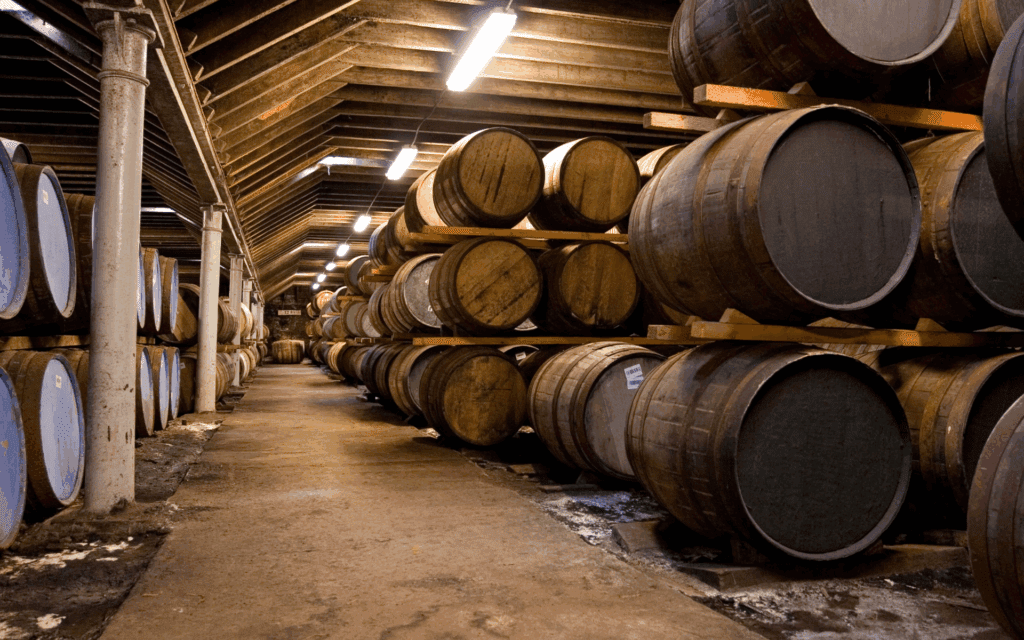Whisky…. What on earth is going on!!
While this grand title may suggest some clairvoyant insight, sadly, I can’t promise that. However, I hope to offer some common sense, which seems to have been a bit lost over the last decade (or more, depending on who you ask) in the ever-popular area of whisky investment and collecting.
Whisky has rarely been out of the news in the last ten years, with bottle prices surging, being redefined as an asset class, and various million-pound-plus casks (including the £16m Ardbeg cask) delivering remarkable returns for sellers.
As with any market, this upward trend could not last forever (although it seemed never to slow!), and for some, it has ended very badly. However, this current downturn in cask prices is not just due to a shift in demand for the drink but also stems from a far more sinister cause.
As with many markets that have boomed in the past, unscrupulous dealers, so-called experts, and brokers have flooded in, seeking a quick profit (and it seems they are getting it!). Sadly, it appears that casks of whisky were the asset they had been waiting for.
It should also be remembered and clearly stated that this market has existed for decades, even centuries, before these issues arose. There are many fine, honest, and trustworthy sellers of casks who have weathered the ups and downs of the market and will continue to thrive.
The recent BBC documentary, Disclosure: Hunting the Whisky Bandits, aired in late March and exposed to a wide audience the practices that now appear to have been prevalent in certain parts of the market.
The tactics used seem, at best, misleading (though they could be considered fraudulent) and, at worst, criminal. People are now facing the loss of life savings and pensions, with little chance of recouping their investment, let alone the vast profits that were, essentially, promised.
So how could this happen? Frankly, there are too many factors to cover here, but two stand out to me.
Firstly, the genuine returns some casks have brought since their purchase in the mid to late 1990s are enormous. Stories of Macallan casks bought for £2,000, forgotten until a dusty receipt is found, then sold for over £1m, are true – though rare, but true. Scammers can use genuine past data to project a forecast for the future, but no market’s past performance is a reliable guide to its future. This has allowed for gross overselling.
The market then and now are completely different worlds, and the stocks available back then are no longer available today. The market crashed in the 90s due to the whisky loch of oversupply, followed by a boom from the early 2000s onwards, driven by a new generation of drinkers and a scarcity of stock.
But the key is that these overpriced casks are not genuine ‘greats’. A Swatch wristwatch is not a Rolex, a D-flawless natural diamond is not a D-flawless lab-grown diamond, and while some may consider them investments, they exist on entirely different planes.
Secondly, and perhaps where the real criminal activity lies, is in investing in a physical asset you never actually take delivery of or even see.

These casks must be stored in HMRC-controlled and licensed warehouses, many of which don’t deal with the public, meaning you never take physical possession of the goods. In some cases, your certificate of ownership is no more valuable than a diamond grading certificate from the Peckham branch of the Trotters Independent Trading Co. School of Diamond Grading (an odd reference, not meant to make light of the situation, but you get the point). This has led to casks that never existed being sold to people or, in some cases, casks that do exist being sold more than once. Often, this occurs alongside inflated prices, creating a double whammy.
I don’t want to dwell on what has happened or how it occurred, as there is plenty in the documentary to watch and other articles offering more in-depth coverage. But what can we learn from this, and what should you do if you’re concerned you might be caught in one of these traps?
Firstly, we must always remember that investing in anything carries risks, even buying a cask for personal consumption. There are risks involved – always drink responsibly. Don’t get caught up in the hype of promised returns; nothing is guaranteed. Only buy from a broker with proven provenance, which is a key term in any field we value. And, of course, ensure your paperwork is in order.
The best and most official guidelines for buying a personal cask come from the Scotch Whisky Association and can be found here: Personal Investment in a Scotch Whisky Cask.
But also get your cask valued on a semi regular basis. Ask for samples and regauge figures – the measure of what volume and strength is in the cask which will ultimately determine return.
If you’re concerned about a cask you own, speak to the seller and request a Delivery Order in your name. If that cannot be supplied due to warehouse restrictions, consider having the cask moved to a different warehouse. Any cost involved will be well worth the peace of mind. After all, this is your cask; you should have clear ownership and be actively involved in its journey.
I’ve been asked recently how prices have been affected. The truth is, we don’t know yet. However, it’s fair to say that the hot market of 3-4 years ago has cooled, and prices have compressed. I don’t think this is directly in reaction to the recent news, but if a glut of casks comes onto the market as a result, it could have a worsening effect.
And finally, a question I was asked only today: “If I want to buy a cask, what do I do?” Firstly, understand the risks involved by speaking to a reputable broker or distillery directly (there are only a few that sell casks). Buying a blue-chip whisky will always offer the best return and/or protection, but these casks are rare and still highly sought after.
The point many private buyers seem to miss is crucial: know your exit strategy. Are you buying to bottle for a special occasion like a family wedding, birthday, or anniversary, or are you looking to sell? Those are all very different opportunities.

As I said to one would-be investor who had it all wrong: buy a few bottles, look at them until you’re bored, and if you can afford to, enjoy them with friends. After all, whisky was made to be drunk and enjoyed!

Colin T Fraser
Colin Fraser is a consultant specialist in Scottish silver, coins, medals, whisky and arms and armour. He is widely recognised for his expertise in Scottish silver and has worked on major collections, exhibitions and publications. Colin now also leads a growing focus on whisky as a serious and collectable asset.
- This author does not have any more posts.






